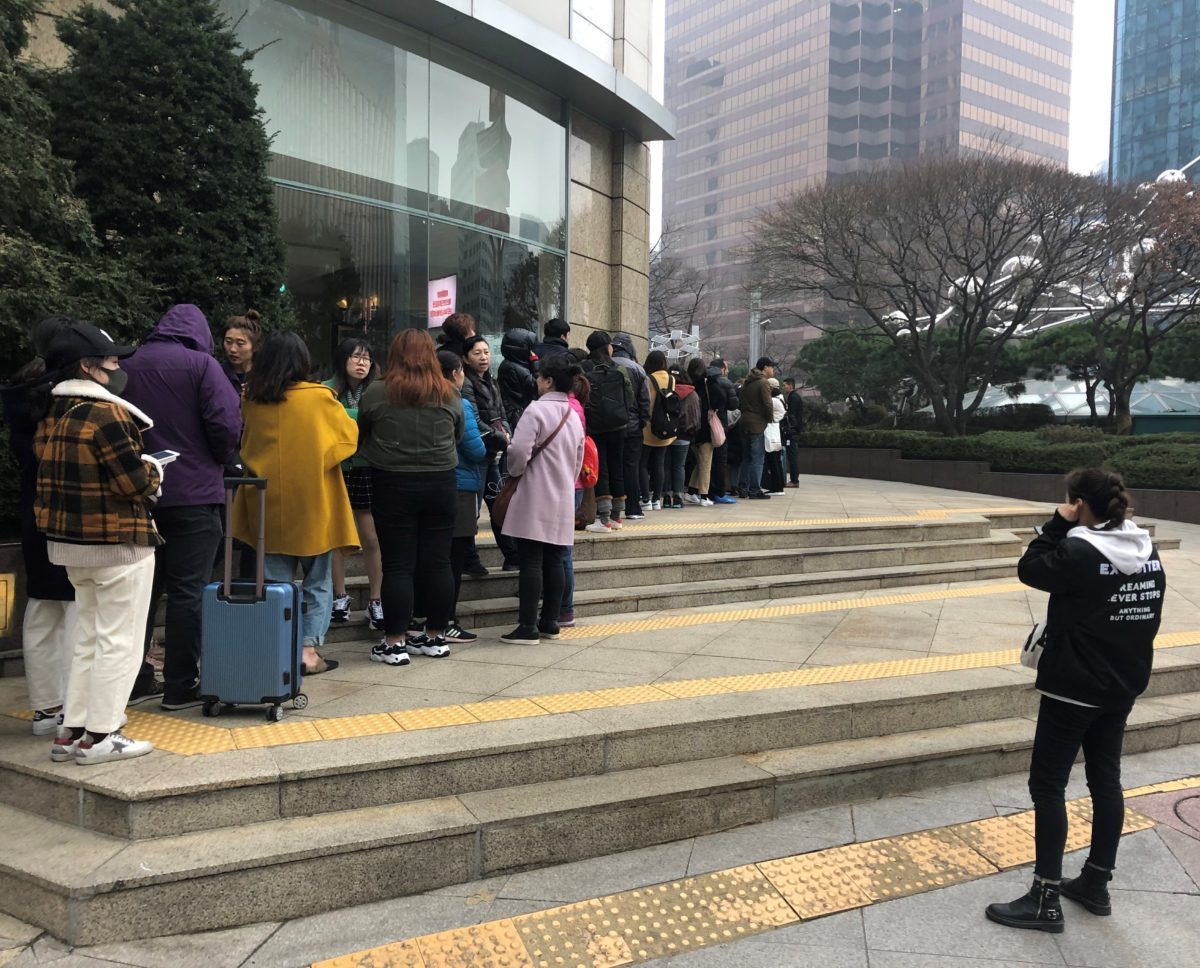
CHINA. The second edition of the Oriental Travel Retail Observer (OTRO), a research and publishing alliance between Jessica’s Secret, China Merchants Securities, and law firm Jincheng Tongda & Neal, has been published this week. [Note: As with all reproduced reports, please note the views expressed in the report are not necessarily those of The Moodie Davitt Report].
As reported, OTRO’s publishers describe the project, launched in July, as a first for China’s travel retail industry in presenting regular industry research, big data analysis, Chinese consumer surveys, and legal opinions.
The second edition focuses on the enhanced offshore duty free shopping policy introduced on 1 July; tracks passenger traffic and spending in Hainan; analyses consumer trends and travel retail pricing inside and outside China; interviews Korean purchasing agents (daigou); and examines foreign investment in cross-border ecommerce.
The most fascinating section is the interviews with two Korean daigou traders, both anonymous. Their views underline why Korean duty free remains highly attractive for daigou traders. But they also raise the question of whether the Chinese authorities will continue to turn such a blind eye in future to huge ex-Korea reseller volumes – especially considering the close scrutiny in place to limit daigou activity out of Hainan.
The report notes that in 2019, 6.02 million Chinese tourists visited South Korea, with a total duty free consumption of RMB124.89 billion, which indicates an average duty free consumption of about RMB20,000 (US$2,880) per capita.
Here is a brief summary of the two interviews. Aliases rather than real names have been used:
Arian: Aged 25, an ecommerce practitioner and part-time Korean purchasing agent. Arian earns an annual income of RMB200,000 to 300,000 (US$29,000-US$43,000) from his purchasing business in Korea. He flies about four times every year between China and Korea, and his cost of purchasing duty free products for his Chinese customers totals between RMB150,000 (US$21,500) and RMB200,000 (US$29,000) per trip.
Arian usually visits Lotte, Shilla or Shinsegae for duty free purchases, and enjoys highest-level membership status. Arian noted that it is possible for tourists to obtain lower duty free prices in Korea by participating in cashback groups. There are two common cashback groups for tourists to choose from, the report notes.
(1) Small Group (SG): This gives customers a floating cashback rate between 19% and 25%, in addition to membership discounts. This cashback rate is valid for a wide range of products and allows any payment method, including Alipay and UnionPay.
(2) Middle Group (MG): This can deliver customers a discount rate up to 52%, but is only valid for specific products, mainly the Korean P&C products. The MG mutually excludes any other discounts of the duty free shops and restricts payment methods to ‘cash only’. When applicable, MG provides tourists with lower prices than SG.
Arian told OTRO that promotions provided by SG and MG change over time. Information on specific cashback rates can be obtained as trips are scheduled to the cashback companies, which provide customers with car pick-up services to aid shopping convenience.
Referring to the long queues outside the duty free shops often seen in the early mornings, Arian explained that is because of the limited daily inventory of some popular products which can bring high profits to the purchasing agents.
These products are so popular that when inventory gets low, they are sold with restrictions such as ‘one unit per head’, or in bundles only, together with other less popular products. By selling products in bundles, the retailers manage to clear their inventory effectively. But for purchasing agents, buying bundles means having to sell items that their customers may not need.

Firstly, duty free products are cheaper in South Korea than in Hainan. In June 2020, for example, a well-known international product with an original price of about RMB2,700 (US$390) was sold at Sunrise Shanghai for approximately RMB2,400 (US$345), allowing for a -20% off. However, this same product could be obtained at a duty free shop in South Korea for RMB1,350 (US$195) per unit, thanks to a ‘2 for 1’.
Secondly, compared to the transparent price system in Hainan, the price system in South Korea is more complicated, and thus less accessible to ordinary customers. By joining a cashback group, customers get high cashback after applying their shop membership discounts.
Thirdly, even given the enhanced annual RMB100,000 duty free purchasing limit in Hainan, South Korea volumes are unrestricted and therefore highly attractive. Products purchased by a purchasing agent are often shipped from Korea to Hong Kong through customs brokers, and then subsequently processed in Hong Kong. The existence of discriminatory prices makes it possible for purchasing agents to obtain high profits, the report said. The gross profit of a Korean purchasing agent can reach 40%, and the net profit over 30%, the report concluded.
On the establishment of the Free Trade Port in Hainan, and whether that might threaten his business as a Korean purchasing agent, Arian was optimistic that Korean purchasing agents would retain a large number of customers due to the convenience they bring.

 Bella: 25, a student. She earns an annual income of RMB100,000-200,000 (US$14,500-US$29,000) as a Korean purchasing agent. Before the outbreak of the pandemic, Bella visited South Korea almost every month, and her consumption amounted to RMB70,000 (US$10,000) to RMB80,000 (US$11,500) per visit. Occasionally, Bella purchases high-value bags and watches for her customers, which adds considerably to her average expense.
Bella: 25, a student. She earns an annual income of RMB100,000-200,000 (US$14,500-US$29,000) as a Korean purchasing agent. Before the outbreak of the pandemic, Bella visited South Korea almost every month, and her consumption amounted to RMB70,000 (US$10,000) to RMB80,000 (US$11,500) per visit. Occasionally, Bella purchases high-value bags and watches for her customers, which adds considerably to her average expense.
Among all her purchasing destinations (Korea, Europe and Japan), Bella visits South Korea most frequently. That is firstly because of the low average duty free price there, but also due to the relatively short flight time to Korea from China and cheap flight tickets.
Bella visits all the main Korean duty free shops and enjoys their membership privileges as well. Mostly she chooses Shilla IPark for purchasing, as it is less crowded. Compared to the most popular duty free shops, average prices there are not so competitive. But Bella likes the store due to its high availability for items she needs, appropriate cashback rate, shorter queues and fewer compulsory bundles.

Among the two cashback groups, Bella mainly goes with MG, since MG cashback rates are applicable for the products demanded by her customers. SG provides better prices than MG when you need luxury products, said Bella.
During the pandemic, Bella tried to purchase duty free products for her customers in Hainan but returned little profit. Compared to the duty free shops in South Korea, those in Hainan sell products at higher prices and offer no cashback, which leaves hardly any profit for purchasing agents, she noted.
Therefore, Bella plans to return to Korea for her purchasing as soon as the pandemic allows. Like Arian, Bella does not consider Hainan as a threat to her purchasing business. She has faith in the loyalty of her customers, who would not necessarily travel to Hainan for shopping.
Moodie Davitt comment: Opinions vary in the travel retail, beauty and luxury sectors as to whether, when, and to what extent the Chinese authorities might crack down on the daigou business out of South Korea.
As one senior source notes, it is interesting to see China currently putting such efforts into controlling daigou business out of Hainan (the announcement of the enhanced offshore duty free shopping policy contained stern warnings about organised reselling activity) and not yet from South Korea. The source believes that is more to do with ridding Hainan of its historic tag (now outdated as the province moves towards Free Trade Port status) of being a conduit to large-scale smuggling than any acceptance of the Korean daigou trade.
“I am convinced that China will at some point crack down on the Korean duty free situation,” he said. “There will be a trigger to it, there always is… but it will come. There is also the issue that China needs the domestic consumption to drive GDP. I cannot imagine that they will allow hundreds of millions in [Korean] daigou which effectively comes from their domestic consumption.”
Ker Zheng & Queenie Yao, writing for the Azoya Group blog (full report coming soon), said that despite the official warnings, controlling daigou spending in Hainan may be difficult, at least for smaller scale traders. “It is difficult to tell whether a person buying items is a daigou reseller or just purchasing for friends and family,” they noted.
Whether that’s the case or not, Seoul seems sure to remain the hotspot of Asian daigou activity for now. But given the power of the Chinese authorities to turn off the tap at any point, that is a precarious base on which to rest the future of the world’s largest duty free market.













